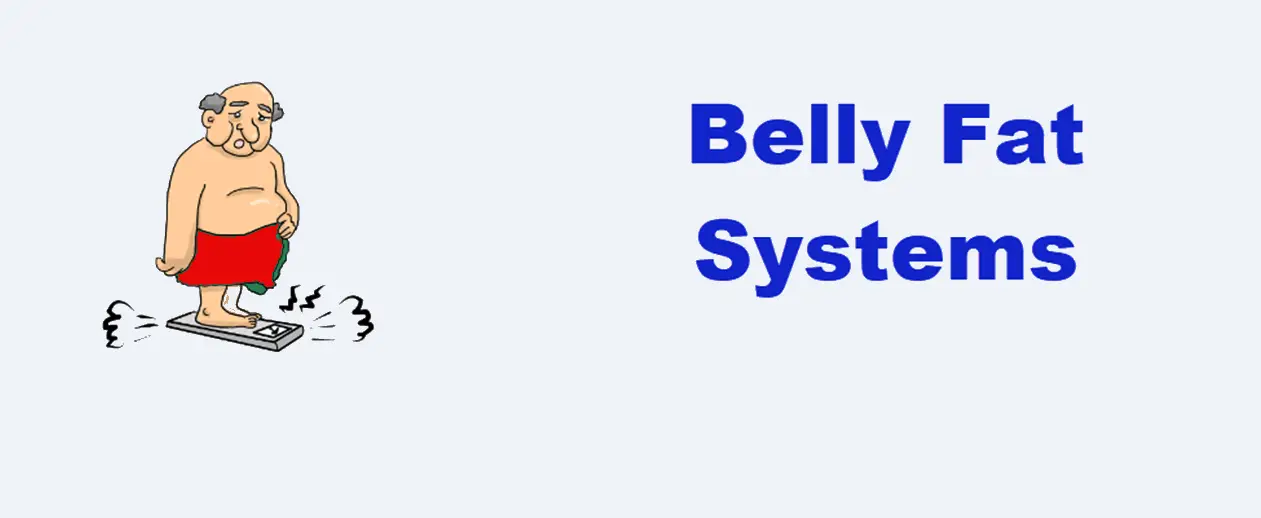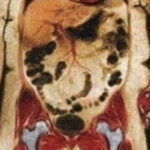Are you struggling to shed that stubborn belly fat even though you’re trying everything? If you’re a woman over 50, you’re not alone. Discover the surprising reasons why belly fat is so challenging to lose after 50 and what you can do to finally see results!
Introduction
For many women over 50, losing belly fat can seem like an impossible task. Despite making healthy choices and staying active, that stubborn fat around the midsection just won’t budge. Understanding the reasons behind this can help you address the issue more effectively and develop strategies that work for your body.
Physiological Changes
Hormonal Shifts and Menopause
One of the most significant factors affecting belly fat in women over 50 is hormonal changes, particularly the decline in estrogen levels associated with menopause. For example, Jane, a 52-year-old mother of two, noticed that despite maintaining her regular exercise routine, she started gaining weight around her midsection. This is a common experience as estrogen helps regulate fat distribution, and its decrease can lead to a higher accumulation of fat in the abdominal area. Additionally, these hormonal shifts can slow down metabolism, making it easier to gain weight.
Muscle Mass Reduction
As we age, our muscle mass naturally decreases, a condition known as sarcopenia. Muscle is metabolically active tissue, meaning it burns more calories at rest compared to fat. Mary, a 55-year-old office worker, found that she was gaining weight even though her diet hadn’t changed much. This was partly due to the natural loss of muscle mass, which lowered her basal metabolic rate, leading to fewer calories burned throughout the day and an increase in fat storage, especially around the belly.
Insulin Resistance
Older adults are at a higher risk of developing insulin resistance, where the body’s cells do not respond effectively to insulin. This can lead to higher blood sugar levels and increased fat storage, particularly in the abdominal area. For instance, Linda, a 60-year-old retired teacher, was diagnosed with prediabetes, which explained her difficulty in losing weight around her stomach. Managing blood sugar through diet and lifestyle changes is crucial in addressing this issue.
Lifestyle Factors
Dietary Habits
Diet plays a significant role in weight management. Many women over 50 may follow dietary patterns that include higher amounts of processed foods and sugars, which can contribute to belly fat. Susan, a 58-year-old grandmother, realized that her habit of snacking on sweets and processed foods was affecting her waistline. Emphasizing whole foods, reducing sugar intake, and watching portion sizes can help manage weight more effectively.
Physical Activity Levels
With age, activity levels often decrease due to various factors such as busy schedules, physical limitations, or lack of motivation. Regular physical activity, including both cardio and strength training, is essential for burning calories and maintaining muscle mass, both of which are critical for reducing belly fat. For example, Patricia, a 54-year-old accountant, noticed she had become more sedentary at work and at home. Incorporating daily walks and strength training exercises helped her regain her fitness and reduce belly fat.
Sleep Patterns
Sleep disturbances are common in older women and can significantly impact weight gain. Poor sleep affects the hormones that regulate hunger and satiety, leading to increased appetite and cravings, particularly for high-calorie foods. Karen, a 56-year-old nurse, struggled with insomnia and noticed an increase in her weight. Prioritizing good sleep hygiene can support weight management efforts.
Psychological and Emotional Factors
Stress and Cortisol Levels
Chronic stress leads to elevated cortisol levels, which can promote fat storage in the abdominal area. Managing stress through techniques like mindfulness, meditation, and regular physical activity can help reduce cortisol levels and improve overall health. For example, Angela, a 59-year-old small business owner, found that practicing yoga and mindfulness helped her manage stress and reduce belly fat.
Emotional Eating
Emotional eating, or eating in response to feelings rather than hunger, can contribute to weight gain and belly fat. Identifying triggers and developing healthier coping mechanisms, such as engaging in hobbies or talking to a friend, can help break this cycle. Barbara, a 53-year-old librarian, realized she was turning to food for comfort during stressful times. She started journaling and taking up painting to manage her emotions better.
Health Conditions and Medications
Common Health Issues
Certain health conditions, such as hypothyroidism and other metabolic disorders, become more common with age and can contribute to weight gain and difficulty losing belly fat. Addressing these conditions with the help of healthcare providers is essential. For instance, Margaret, a 61-year-old retiree, was diagnosed with an underactive thyroid, which explained her weight gain. Working with her doctor to manage the condition helped her get back on track.
Impact of Medications
Some medications commonly prescribed to older adults, including certain antidepressants, antipsychotics, and steroids, can lead to weight gain. Discussing the side effects with a healthcare provider and exploring alternative treatments can help manage this issue. Elaine, a 57-year-old artist, noticed she gained weight after starting a new medication. Talking to her doctor helped her find an alternative that didn’t affect her weight as much.
Effective Strategies for Belly Fat Reduction
Balanced Nutrition
Focusing on a balanced diet that includes a proper mix of macronutrients—proteins, fats, and carbohydrates—is crucial. High-fiber foods and lean proteins can help you feel full longer and support muscle maintenance. Laura, a 55-year-old teacher, found that incorporating more vegetables, fruits, and lean proteins into her meals helped her manage her weight more effectively.
Regular Exercise Routine
A combination of cardiovascular exercises and strength training is essential for burning calories and building muscle. Activities like walking, swimming, and weight lifting can be particularly effective for older women. Diane, a 58-year-old lawyer, joined a local gym and started a routine that included both cardio and strength training, which helped her reduce her belly fat.
Improving Sleep Quality
Good sleep hygiene practices, such as maintaining a regular sleep schedule, creating a restful environment, and avoiding stimulants before bed, can improve sleep quality and support weight management efforts. Nancy, a 60-year-old homemaker, made changes to her bedtime routine, such as turning off electronic devices an hour before bed and creating a calm environment, which improved her sleep and overall health.
Stress Management Techniques
Incorporating stress management techniques, such as yoga, meditation, and deep-breathing exercises, can help lower cortisol levels and reduce the likelihood of stress-related weight gain. Sharon, a 57-year-old social worker, started attending a weekly yoga class and found that it helped her manage stress and reduce her belly fat.
Consulting Healthcare Providers
Seeking personalized advice from healthcare providers can help address underlying health issues and develop a tailored approach to weight management. Regular check-ups are also important for monitoring progress and making necessary adjustments. Linda, a 54-year-old pharmacist, regularly consulted with her doctor and nutritionist to ensure she was on the right track with her health goals.
Conclusion
While losing belly fat after 50 can be challenging, understanding the underlying factors and implementing targeted strategies can make a significant difference. By focusing on balanced nutrition, regular exercise, good sleep, stress management, and seeking medical advice, women over 50 can achieve their health and fitness goals. Remember, every small step counts and it’s never too late to start making positive changes.
FAQs
Why does menopause make it harder to lose belly fat?
Menopause leads to a decline in estrogen levels, which affects fat distribution and can result in more fat being stored in the abdominal area.
What are the best exercises for women over 50 to lose belly fat?
A combination of cardiovascular exercises, such as walking and swimming, and strength training exercises, such as weight lifting, are effective for burning calories and building muscle.
Can certain foods help reduce belly fat?
Yes, foods high in fiber and protein can help reduce belly fat by promoting satiety and supporting muscle maintenance. Examples include vegetables, fruits, lean meats, and legumes.
How does sleep affect belly fat in older women?
Poor sleep can disrupt hormones that regulate hunger and appetite, leading to increased cravings and weight gain, particularly around the belly.
Is it possible to lose
belly fat after 50 without exercising?
While exercise is highly beneficial, it is possible to lose belly fat by focusing on a balanced diet, managing stress, and improving sleep quality. However, combining these efforts with regular physical activity yields the best results.





